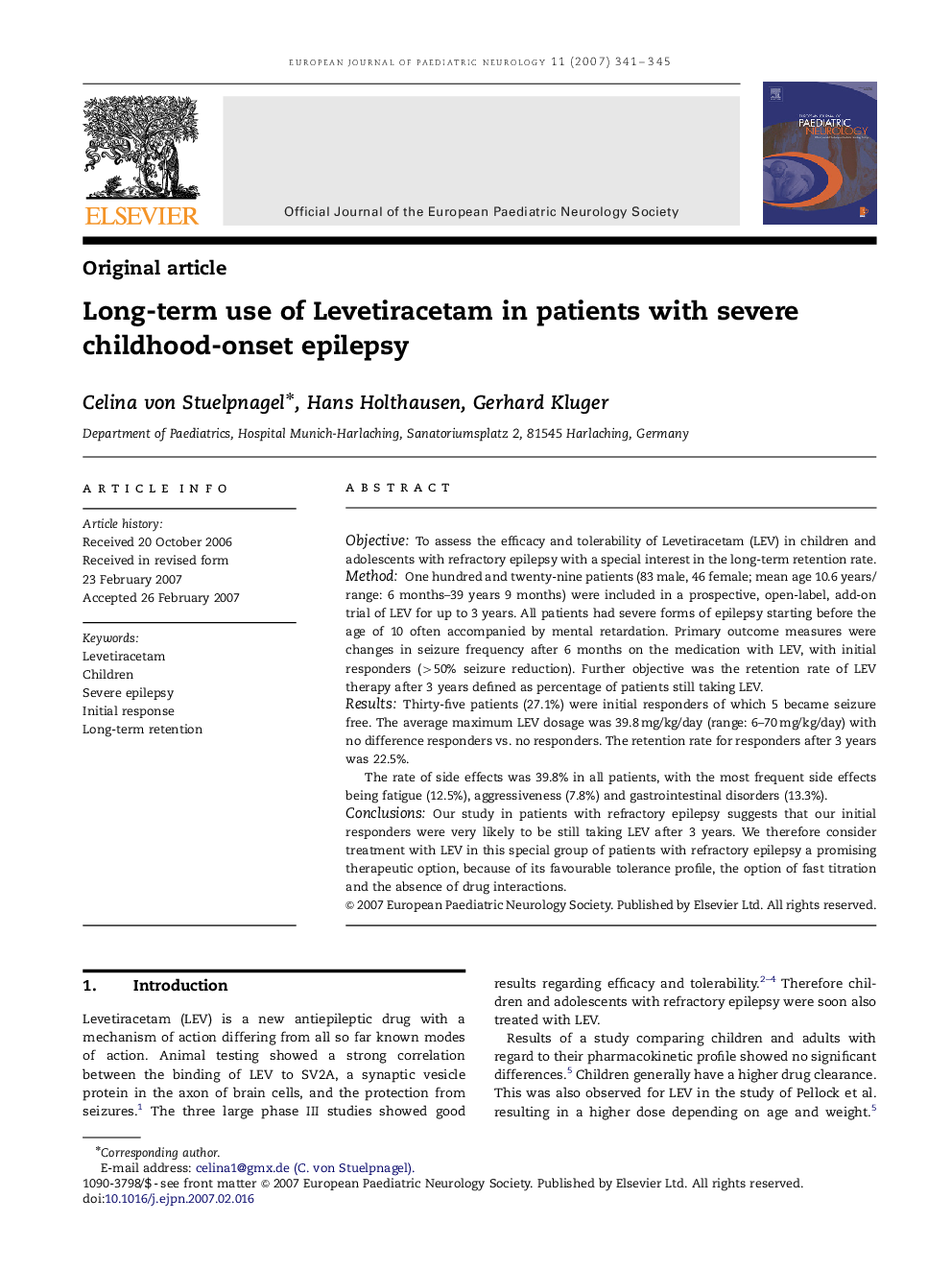| Article ID | Journal | Published Year | Pages | File Type |
|---|---|---|---|---|
| 3054703 | European Journal of Paediatric Neurology | 2007 | 5 Pages |
ObjectiveTo assess the efficacy and tolerability of Levetiracetam (LEV) in children and adolescents with refractory epilepsy with a special interest in the long-term retention rate.MethodOne hundred and twenty-nine patients (83 male, 46 female; mean age 10.6 years/range: 6 months–39 years 9 months) were included in a prospective, open-label, add-on trial of LEV for up to 3 years. All patients had severe forms of epilepsy starting before the age of 10 often accompanied by mental retardation. Primary outcome measures were changes in seizure frequency after 6 months on the medication with LEV, with initial responders (>50% seizure reduction). Further objective was the retention rate of LEV therapy after 3 years defined as percentage of patients still taking LEV.ResultsThirty-five patients (27.1%) were initial responders of which 5 became seizure free. The average maximum LEV dosage was 39.8 mg/kg/day (range: 6–70 mg/kg/day) with no difference responders vs. no responders. The retention rate for responders after 3 years was 22.5%.The rate of side effects was 39.8% in all patients, with the most frequent side effects being fatigue (12.5%), aggressiveness (7.8%) and gastrointestinal disorders (13.3%).ConclusionsOur study in patients with refractory epilepsy suggests that our initial responders were very likely to be still taking LEV after 3 years. We therefore consider treatment with LEV in this special group of patients with refractory epilepsy a promising therapeutic option, because of its favourable tolerance profile, the option of fast titration and the absence of drug interactions.
